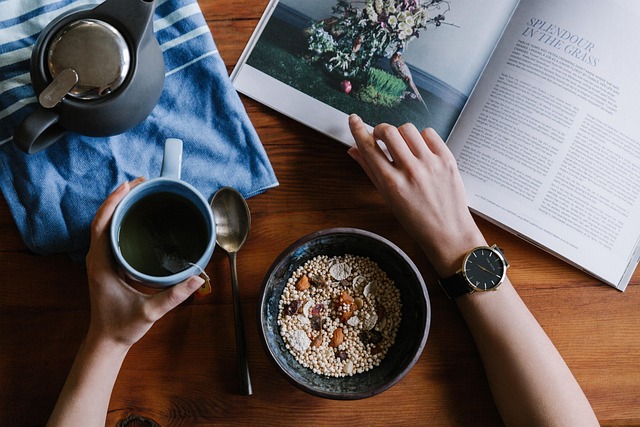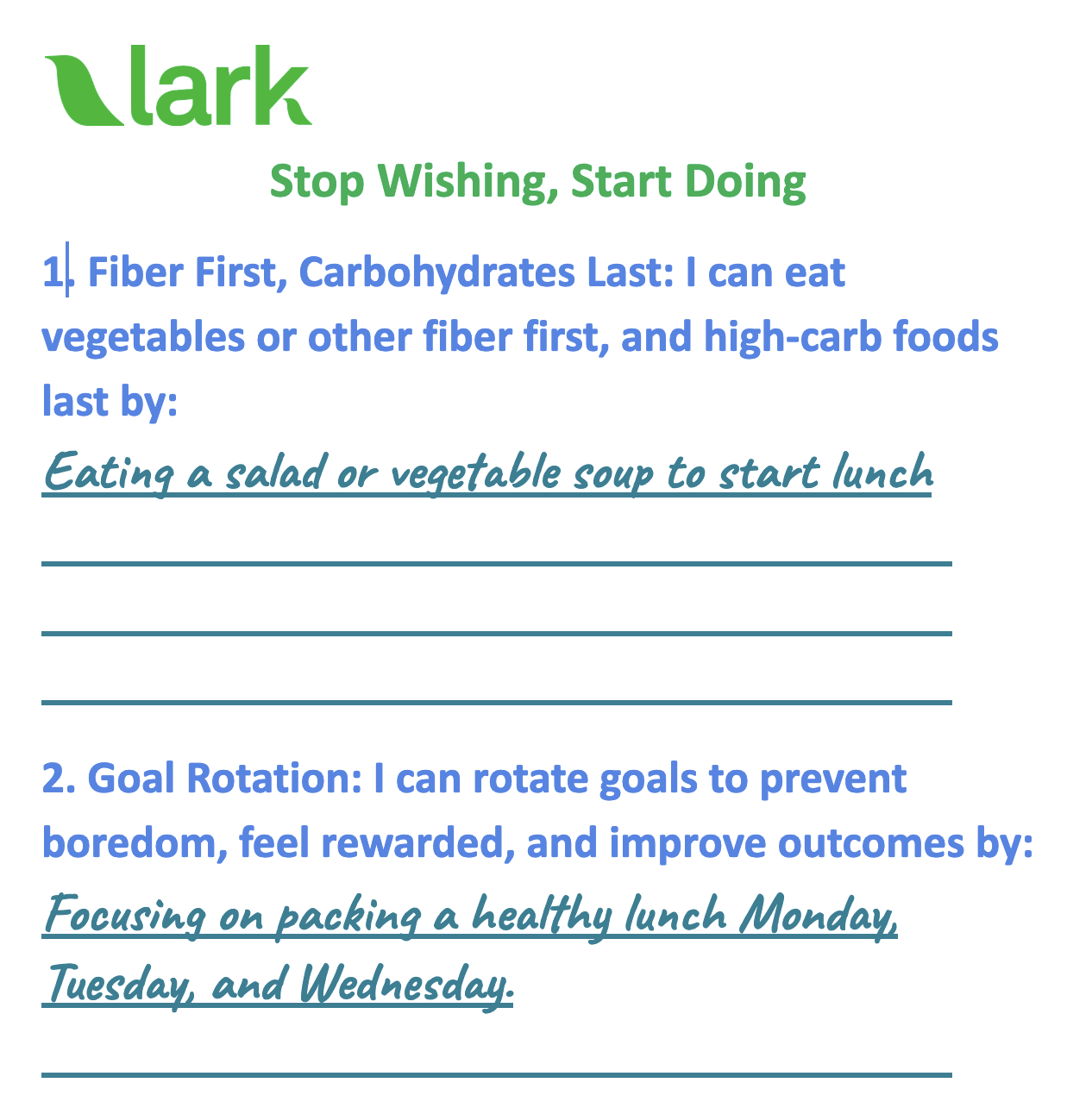In this article:
- Late-night is a common habit involving eating snacks after dinner. It can happen for various reasons like boredom, habit, and emotional reasons.
- It can add unnecessary calories, disrupt sleep, spike blood sugar, increase stress, and more.
- Strategies to reduce late-night eating are to eat balanced meals throughout the day, plan another activity for after dinner, and manage stress and emotions in ways other than eating.
- It can also help to plan to have a healthy snack instead of opting for low-nutrient foods late at night.
- Lark is available 24/7 to help you eat healthier and achieve your health and weight loss goals with or without GLP-1 medications.
Many people find themselves eating late at night for reasons like habit, hunger, or boredom. If late-night eating is regular for you, and if it's getting in the way of your weight loss and health goals, it may be time to think about it. Here's what you should know about late-night eating and how to manage it in healthy ways.
What Is Late-Night Eating?
Late-night eating is eating a snack after dinner or having a late, large dinner close to bedtime. It could be occasional, but it can become a habit that can be unhealthy if it involves too much food or low-nutrient foods.
Late-night eating happens after your body naturally starts winding down for the night. For many people, this may be around 8 or 9 p.m. It can be earlier if you are an early morning person, or later if you're a night owl.
Causes of Late-Night Eating
Hunger can be a trigger for eating late at night. You may feel hungry late at night if you haven't had dinner or if your blood sugar is low, which can happen for reasons like eating a lot of refined carbohydrates during the day.
Eating late at night can also result from emotional triggers that can cause cravings, like the following examples.
- Having a stressful day
- Experiencing high levels of chronic stress
- Feeling an emotion like loneliness or anger
- Being bored
Having an all-or-nothing mindset can also trigger late-night eating. If something didn’t go right during the day, like you skipped a workout or ate something you didn’t intend to eat, it can lead to “giving up” for the rest of the day.
Sometimes, snacking late becomes a habit. It may pair with something like watching television or scrolling through social media.
Effects of Eating Late at Night
An after-dinner snack isn’t always unhealthy, but there are often patterns that can cause concerns.
Late-night eating adds calories to your day. A common concern is that these calories may come from energy-dense, low-nutrient foods. Eating too much of these foods contributes to weight gain. In addition, these foods may be replacing healthier foods if you’d chosen them earlier in the day.
Here are some other concerns with eating later in the evening.
- If it becomes a habit, you may be teaching yourself to eat without being mindful or hungry
- It can disrupt your body’s natural circadian rhythm and interfere with sleep
- It may affect blood sugar levels and regulation
A healthier approach is to eat when you’re truly hungry and choose nutrient-dense foods.
How to Tell If You’re Truly Hungry at Night
One way to tell if you’re physiologically hungry is to rate your hunger using a scale of 1-10. A 1 is starving, and a 10 is stuffed. Try to eat if you’re around a 3 or 4, or just getting hungry.
Here are some other ways to see if you’re truly hungry.
- Thirst can feel like hunger, so try drinking water to see if that helps reduce hunger.
- Ask yourself if you are hungry for something healthy, like vegetables, fruit, or a hard-boiled egg, or if you are craving a specific low-nutrient food.
- Ask yourself if you’re bored or feeling an emotion, like loneliness or anger, that’s making you reach for food,
Keep a food log to monitor your late-night eating occasions. Note what you ate, what time, and what you were feeling. You may notice patterns like going to the fridge after you have an argument with your spouse or you had a bad day at work.
How to Stop Snacking at Night
Eat balanced meals and nutritious snacks during the day so you’re less likely to have hunger at night. Stay hydrated, too.
Try addressing any other causes of late-night snacking with more helpful solutions. For example, if you’re stressed, incorporate stress management techniques like exercising, socializing, and journaling into your routine. Or, if you’re bored at night, plan activities to do.
Wind-down rituals can help, too. “Close” the kitchen at a certain time, and consider putting up a “closed” sign on your fridge or pantry. After you close the kitchen, go straight into another ritual, like brushing your teeth and packing up for the next day. Include time to think about reasons to stop eating, like needing to sleep well and be alert for a workout and a meeting tomorrow.
Healthy Snacks for Weight Loss
There may be times when you truly are hungry at night. In those cases, work with your body by offering it the nutrients it needs. Try small portions of healthy foods. Here are examples.
- Oatmeal with fruit or yogurt
- Cottage cheese with fruit or seeds
- 1 tablespoon of peanut butter on a brown rice cake
- Air-popped popcorn and 1 light string cheese stick
Serve yourself, then sit down and eat mindfully.
How Lark Can Help
Knowing how to recognize and manage late-night eating can help you make more progress towards your goals. Lark can help you make more small changes to improve heart health, lose weight, and manage or prevent chronic conditions. Your Lark coach is available 24/7 for encouragement, nutrition and physical activity coaching, and habit tracking. Lark can help you make healthy choices and establish habits that fit into your lifestyle so you can lose weight and keep it off with or without GLP-1 medications.
Click here to see if you may be eligible to join Lark today!
Reviewed by Heather Tonkins, Lark CDC Health Coach



.jpg)








.webp)






-images-0.jpg)

